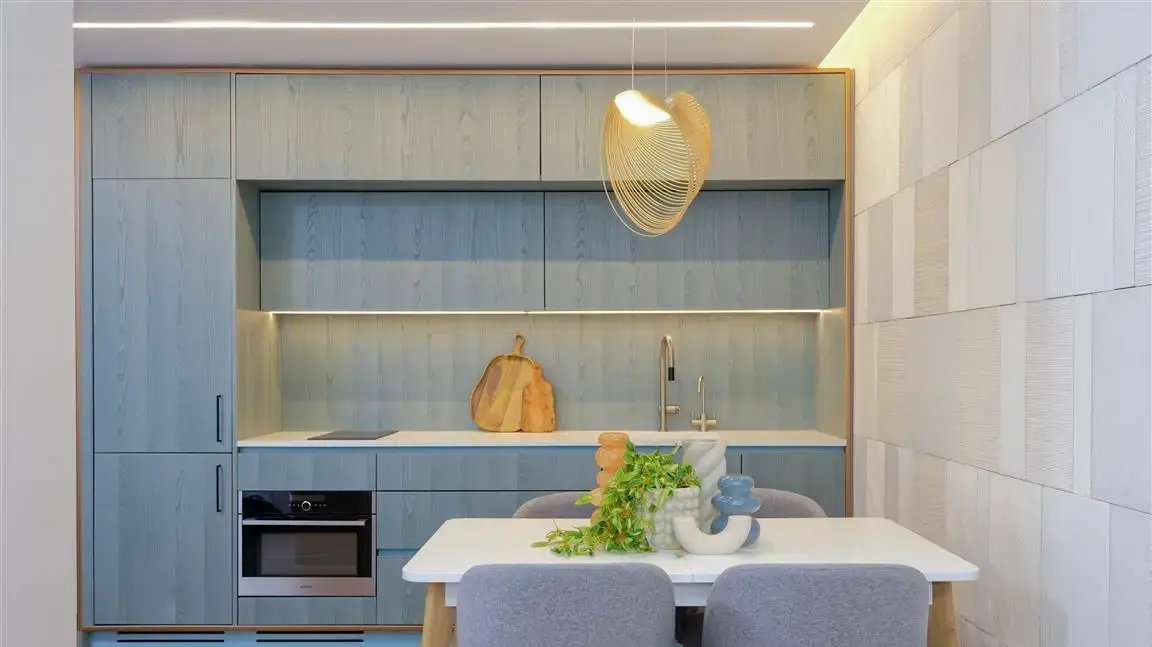I find myself dealing quite a bit with the philosophical issue called "female cuisine."
There are times during which my mind is firm and very vocal and I know this is my position as I know the sun is shining in the east.
Sometimes I check myself in front of my fellow chefs and search in tassels to find any difference in the female culinary view versus the male one.
Well, I have learned over time not to compare but to define.
Traditional home cooking was, as a rule, the domain of women.
The ancient role of the matriarch was to maintain and nurture the family unit, cooking was part of feeding the family in every dimension and layer.
The family was formed around the home kitchen.
Stories, memories and tastes were cooked for them there.
When cooking became a profession and thus the need to move from the home kitchen to the professional became the field became the realm of men.
Women have always been integrated into the industry, one way or another.
And their professional path, for the most part, was accompanied by a slightly different mindset.
Feminine complexity is not driven by ego, not explicitly, anyway.
Cooking and baking is another channel through which women can give, rejoice, excite, contribute, connect and unite.
And this is the core of the wonderful book initiated by Yael Kalev.
When Yael approached me with the ripening of the project which is all about the rest of the female spirit, she asked me for recipes that I particularly like or ones that will always star on the family table.
Recipes that have meaning and essence for me as a woman, as a creator, as a mother and as a professional chef.
This guidance threw a first beam of light on what would later turn out to be a powerful, paperless project.
Free of self-glorification and full of empowerment and mutual fertilization.
Before I go into detail about the book, I want to share with you my text, which appears next to the two recipes I chose, in the heart of the book.
My words are no less important to me than my recipes.
And you, who have been with me for over fourteen years at the top of the paper, are invited, through this story, to get to know me and the beginning of my path as a woman in a particularly masculine field.
Maya Darin (from "Their Own Kitchen"), Photo: Daniel Leila
My first service (Maya Darin, from the book "Their own kitchen")
I started my career as a restaurateur in the mid-1990s - a girl in her twenties, a good girl with an excellent maturity and a paved road to university.
But I dreamed of a career in the professional kitchen, which in those days was considered tasteless, something suitable for people who do not have high expectations of life.
I studied confectionery for a year, changed fields of interest, looked for my way.
The hand of chance brought me to the kitchen of Shalom Kadosh's "Cow on the Roof," on an evening when a rich and glorious meal was served to members of the Order of the Knights of the Grill.
The audience, shaman and salta of the business and political world, was on the purity of the male sex, and in the kitchen - a glorious brigade of cooks, from a variety of cultures and backgrounds, but from only one gender.
I, a trainee provider and an observer provider, was the only woman.
I knew nothing about the nature of service, I did not understand the jargon, and the dynamics.
I lined up after the cooks moving confidently in space, trying to mimic their body language.
When Chef Kadosh asked me to go to the heating cabinet and bring twenty plates of main course, I proudly set out on a mission.
I opened the hot tin cupboard, loaded a pile of plates on my arms, and set off.
The main course plates of a luxury restaurant are very heavy, and the heat they have accumulated has scorched the exposed skin.
I bit my lip, shed tears, but brought the plates in their entirety to the chef's table, where they were quickly unfolded, and the team of cooks began to arrange the dish items on them.
I stood there, massaging the skin of my hands, watching, trying to digest.
A cook standing next to me whispered to me "You could bring the plates in two revelations, even in three."
At that moment I realized that the limits of power are not the domain of women alone, and experience and common sense are more important than the muscles of the hands.
The service went smoothly, and I even went out with the rest of the crew for a round of applause.
At the end of the evening, a holy chef came to my office and said that he thought the option of the professional kitchen was right for me.
He later also helped me get internships at star restaurants in Paris.
Studying and working in Paris was a formative, exciting, but also complex experience.
There I really understood what it means to be a woman in the elite professional kitchen.
Although male cooks also experienced shouting and even humiliation here and there, in relation to women a chauvinistic dimension was added, sometimes bordering on sexual harassment.
When I returned to Israel and worked in a reputable restaurant, I witnessed the same atmosphere.
When I got to run a kitchen in my “Imuma,” I knew I wanted my staff to work like a family, in the deepest sense of the word. It was important for me to get to know each cook in depth, and also to meet his family members. The human factor is the most important thing for the success of the restaurant, no less than raw materials. To get the most out of the raw material, one needs to study it in depth and respect it. The same is true of people. I learned not to give up a single gram of assertiveness, focus and authority, but from a place of quiet and smile. I have learned that quiet power is most effective.
Today I do writing and culinary production, but when I miss the service, I go to "Ozeria" by chef Avivit Priel.
The small kitchen and the warm atmosphere take me back to the days of "Imuma".
Avivit is not unusual, this is also the management style of sanity like Ayelet Letowitz, Tamar Cohen Tzedek ... I would so much like to add "and many others", but unfortunately even today there are few women at the top of restaurants.
This is a huge miss not only for reasons of equality.
Women bring to the kitchen qualities that are so lacking in it.
It would be great to see more women running kitchens.
It would be great to see more women running anything, even a country, but that's already a topic for another list.
The essence of the book
The book "Their Own Kitchen" contains close to 100 recipes and stories from 50 of the leading food women in Israel.
It is spread over about 3 spectacular color pages in which, in addition to the recipes and stories, there are also amazing photos of the participants and their recipes.
All proceeds from its sale are donated to the Association of Centers for Assistance to Victims and Victims of Sexual Assault, and more specifically to the education programs that the association holds throughout the country for the prevention of sexual violence and for educating children and youth about mutual and beneficent sexuality.
View this post on Instagram
A post shared by מכבת משלהן (@thewcookbook)
To purchase the book, click here
Price: 142 shekels
Project initiator and book editor: Yael Kalev
Book photography: Daniel Lila
Styling: Uriah Geva












/cloudfront-eu-central-1.images.arcpublishing.com/prisa/KMEYMJKESBAZBE4MRBAM4TGHIQ.jpg)


